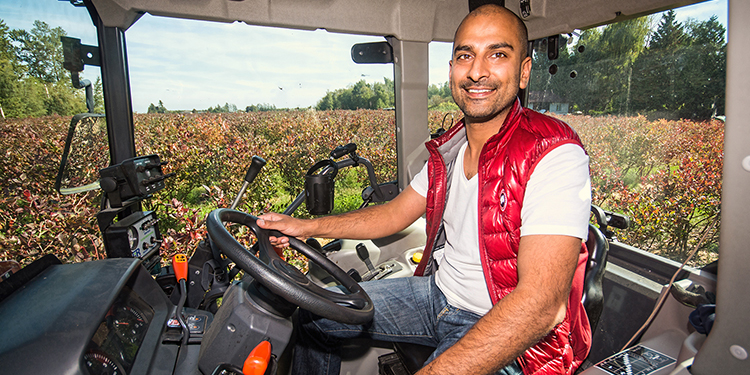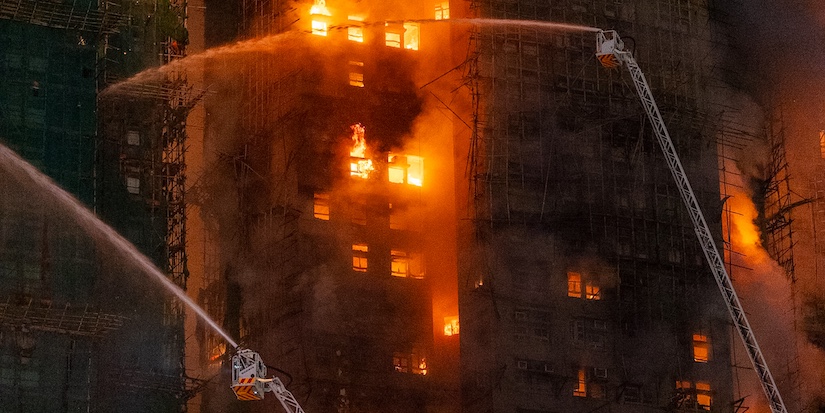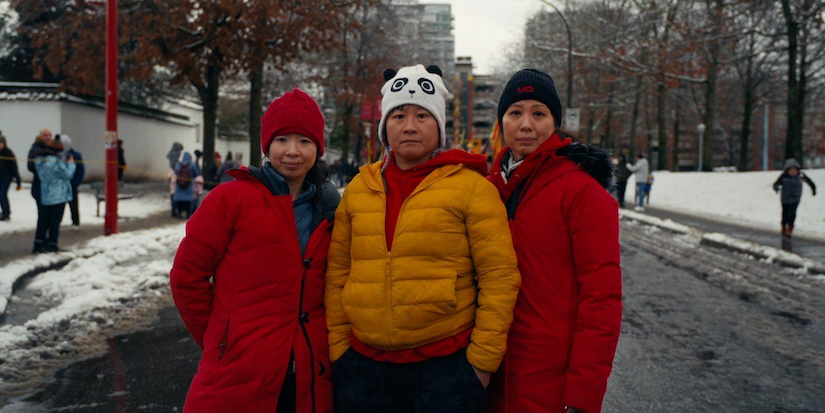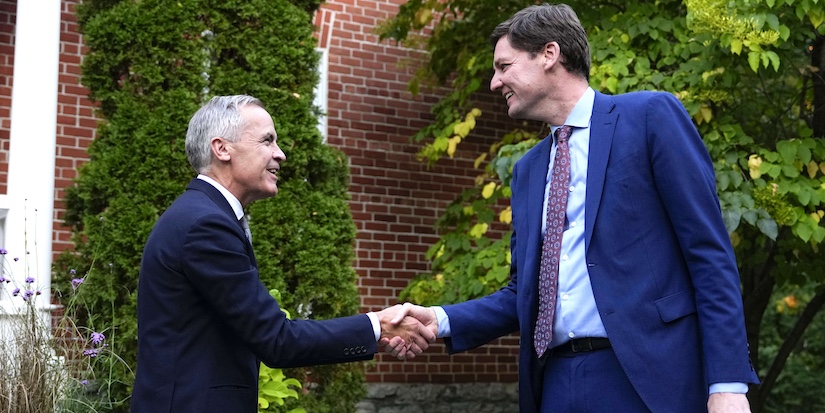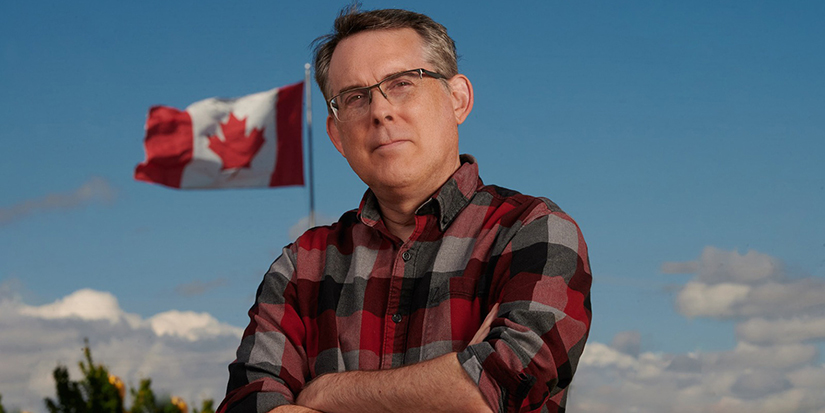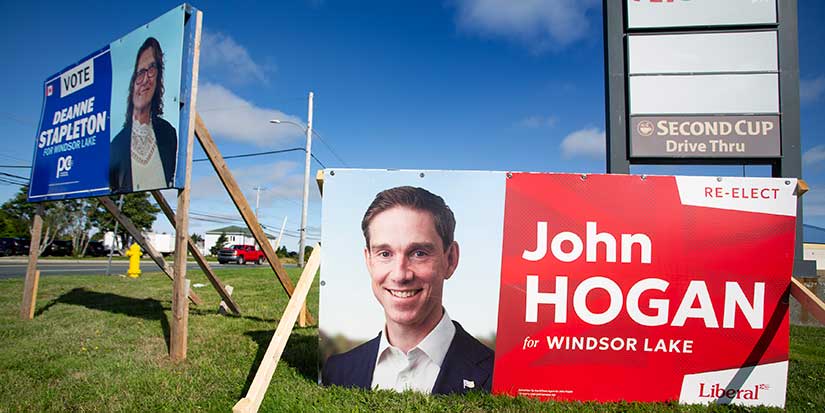Latest News
Big houses on farmland is 'much ado about nothing'
Published 4:46 PDT, Tue October 2, 2018
In the first of a two-part series, The
Sentinel examines the housing-on-farmland issue.
Saving farmland for future generations is
undeniably a noble endeavour.
But what’s been drowned out by the public
outcry at the flurry of 10,000-square-foot homes recently constructed on
farmland, is the plight of the current crop of farmers, according to four
Richmond farmers from multi-generational farming families.
It’s these farming families—who are already
struggling to make ends meet while doing high-risk, low-pay, labour-intensive
work and drawing from a critically shallow pool of labourers—who stand to be “punished”
if Richmond’s current farmland housing rules are changed.
And that’s a slap in their collective face,
according to Dale Badh, Humraj Kallu, Ben Dhiman and Bill Zylmans.
They urge local residents to see beyond the
political rhetoric that claims these “mega-homes” are a clear and present
danger to the future of farming in Richmond.
It’s a red herring issue, according to Badh,
Kallu and Dhiman, one that’s being weaponized for political purposes.
BIG HOMES NOT NEW
Big homes have been built on local farmland
for decades.
When the late Milan Ilich, a prominent
Richmond developer lauded for his philanthropy and civic-mindedness, built a
palatial 22,000-plus-square-foot mansion on No. 3 Road, there were no protests
on the streets or headlines decrying the loss of farmable land on Ilich’s
meticulously manicured, 20-plus-acre gated estate.
Large homes have also been built on No. 5
Road, Sidaway Road and No. 6 Road during the 1990s and 2000s.
So what’s different this time around?
Is it the higher-profile locations of these
homes, built in some cases across the street from residential areas? Or the
proliferation of them? Is it the in-your-face nature of these imposing homes,
because they’re now built closer to the road to comply with civic bylaws
intended to maximize farmable land out back? Or is it because there’s increased
public sensitivity to issues around food production and farmland and
environmental conservation?
Badh, a long-time local realtor, said he
believes the single biggest difference is that politicians are stirring the pot
needlessly.
Rather than rallying the community together
to discuss these issues and helping to increase public awareness and mutual
understanding, Badh said the community is instead being driven apart, sometimes
along cultural lines.
Whatever the reason, many local residents
have voiced their outrage. Some have called for council to put a stop to
10,000-plus-square-foot homes and to bring local rules in line with a
provincial guideline that’s about half of that.
FARMERS IN NEED
Coun. Alexa Loo is among the majority of
council who voted to maintain the current housing rules on farmland.
Asked why she voted this way, despite the
vocal opposition, Loo said she chose to listen to those who farm for a living,
rather than those who seemed to be speaking more from emotion than knowledge of
the issues.
She spoke with members of the Richmond
Farmland Owners Association to gain a better understanding of their viewpoints,
businesses and the industry.
That’s something Badh said he appreciated
from Loo as well as the other members of council who also spoke with him and
the farmland association: Bill McNulty, Linda McPhail, Derek Dang, Ken Johnston
and Chak Au.
Badh said he’s never been contacted by Coun.
Harold Steves or Coun. Carol Day, and said he expected more leadership from
them since they sit on council.
“These councillors are elected by the
community. It’s their job duty to come up with a solution. But with Carol and
Harold, it’s been a confrontation from day one. Are they the right type of
people to lead our city?”
While Bill Zylmans isn’t a member of the
farmland owners association, he said not enough is being done to help out
farmers.
Zylmans—a second-generation farmer whose
family has been toiling on local farmland since the 1960s—was busy late last
week preparing for the Sunday rain that was in the forecast, when he was
reached by The Sentinel for his opinion.
The mega-housing-on-farmland controversy has
become an easy-to-latch-onto issue, he said, that’s been heavily politicized
and transformed into simplistic, bite-sized portions for the public to consume.
Rather than focus on the size of the homes
farmers are building on their own property, Zylmans said the city, province and
federal government need to do more to help out farmers, who desperately need
improvements to both irrigation and drainage, for starters.
FUTURE IS NOW
Ben Dhiman can’t understand why much of the
conversation is about saving farmland for future generations.
As a second-generation farmer in Canada, he
and his brother are part of the young generation of farmers, like Humraj Kallu,
who is a full-time farmer.
But their efforts to keep farming alive in
Richmond don’t seem to be appreciated.
In fact, Dhiman noted that Dale Badh is being
demonized in the press and on social media as a “realtor/farmer”.
“I put all my income from the real estate
side into the farming business,” Badh said. “They don’t look at that.”
Said Dhiman: “He’s actually kept farming
viable in an area where it’s so expensive and very difficult to do business in
farming.”
Dhiman and his brother also keep their family
business afloat by working second jobs. Dhiman is a longshoreman.
“If you’re trying to set something up for the
future farmers, and you don’t know who they are, that’s another recipe for
disaster,” Dhiman said. “Why not ask what farmers need to help them today?”
Dhiman, Badh and Kallu were all critical of
Coun. Harold Steves, and the way he is portraying the issue to the general
public.
“What is Harold protecting? He’s talking
about the future farmer when he’s failing to realize what’s at jeopardy now:
the current farmer,” Dhiman said.
MUCH NEEDED CAPITAL
Badh said Asian investors who are purchasing
farms and constructing large homes on them, are unfairly being portrayed as
villains.
“I think they’re innocent victims,” said
Badh. “We are taking advantage of them. We tell them to invest…(and they are
being told) we want your money, but we don’t want you or your big houses.”
But Badh said all this new development is
providing much-needed capital that will benefit the community in many ways.
Aside from the property taxes that result
from the property improvements, and the labour and materials that go into
construction, these parcels of farmland will now almost assuredly be farmed to
qualify for the farming tax exemption. If it’s not, the property owner faces a
massive tax bill on the entire property, rather than on just the portion where
the home is built.
Asians coming to Richmond should be thanked
for the money they bring with them that pays for roadways, hospitals and
infrastructure, he said.
LOCAL SUPPORT
If Richmondites really want to ensure the
future of local farming, a simple change in their shopping habits will go a
long way.
While Badh, Dhiman and Kallu said Richmond
produces much more food today than a decade ago, a significant percentage goes
to waste.
Locals should turn to their local farms for
more of their daily needs. Instead, many spend their money elsewhere.
Big box retailers continue to bring in
cheaper fruits and vegetables sourced from the United States and Mexico at
prices that local farmers can’t compete with.
“People drive right in, buy their fruits and
veggies, and are not supporting those who put their blood, sweat and tears into
farming,” Dhiman said.
Kallu said there’s not much profit to be made
in strawberries, blueberries and blackberries because of what’s brought in from
south of the border.
Bill Zylmans knows this story all too well.
This past summer, despite having some of the best strawberries in the Lower
Mainland, his sales were remarkably slow in July.
Where was the community support when he could
have used it?
